 August 2023 in “International journal of experimental research and review”
August 2023 in “International journal of experimental research and review” Ficus racemosa leaf extracts help heal diabetic wounds and lower blood sugar.
 August 2023 in “International Ayurvedic medical journal”
August 2023 in “International Ayurvedic medical journal” Improper diet, lifestyle, and stress are major causes of hair fall.
 August 2023 in “International Ayurvedic medical journal”
August 2023 in “International Ayurvedic medical journal” Ayurvedic treatment successfully regrew hair in a 7-year-old girl with alopecia areata.
 August 2023 in “Research Square (Research Square)”
August 2023 in “Research Square (Research Square)” Two microRNAs affect hair follicle development in sheep by targeting specific genes.
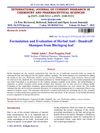 July 2023 in “International journal of current research in chemistry and pharmaceutical sciences”
July 2023 in “International journal of current research in chemistry and pharmaceutical sciences” The shampoo made with Bhringraj leaf and other natural ingredients shows promise as a natural dandruff solution.
 July 2023 in “International Ayurvedic medical journal”
July 2023 in “International Ayurvedic medical journal” Ayurvedic treatment can effectively manage PCOS and its symptoms.
 July 2023 in “International Ayurvedic medical journal”
July 2023 in “International Ayurvedic medical journal” Ayurvedic treatments showed promise in treating premature graying of hair without harmful effects.
 April 2023 in “Research Square (Research Square)”
April 2023 in “Research Square (Research Square)” Lower GPX4 mRNA levels are linked to higher disease activity and symptoms in lupus patients.
 April 2023 in “Research Square (Research Square)”
April 2023 in “Research Square (Research Square)” Many healthcare workers who had Covid-19 suffer from long-term symptoms like hair loss and fatigue, especially women.
 January 2023 in “Research Square (Research Square)”
January 2023 in “Research Square (Research Square)” Hair cortisol may be a good indicator of recent mood in people with bipolar disorder.
 January 2023 in “Archives of Disease in Childhood Education & Practice”
January 2023 in “Archives of Disease in Childhood Education & Practice” Hirsutism in teens is often due to polycystic ovarian syndrome and needs careful assessment and support.
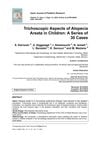 January 2023 in “Asian Journal of Pediatric Research”
January 2023 in “Asian Journal of Pediatric Research” Trichoscopy is crucial for diagnosing and assessing alopecia areata in children.

There is no cure for myotonic dystrophy type 1, so treatment focuses on managing symptoms and complications.
 December 2022 in “International journal of preventive, curative & community medicine”
December 2022 in “International journal of preventive, curative & community medicine” PCOS is a common hormonal disorder in women, causing symptoms like acne and irregular periods, and is managed with medication and lifestyle changes.
 December 2022 in “Communications biology”
December 2022 in “Communications biology”  November 2022 in “bioRxiv (Cold Spring Harbor Laboratory)”
November 2022 in “bioRxiv (Cold Spring Harbor Laboratory)” MOF controls skin development by regulating genes for mitochondria and cilia.
 July 2022 in “Research Square (Research Square)”
July 2022 in “Research Square (Research Square)” Certain miRNAs may play a role in sheep hair follicle development, which could help improve wool production.
 June 2022 in “Veterinary evidence”
June 2022 in “Veterinary evidence” Clomipramine alone does not reduce overgrooming in cats with psychogenic alopecia.
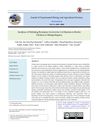 June 2022 in “Journal of Experimental Biology and Agricultural Sciences”
June 2022 in “Journal of Experimental Biology and Agricultural Sciences” Most E. coli in broiler chickens are resistant to multiple antibiotics.
 May 2022 in “Journal of advances in medicine and medical research”
May 2022 in “Journal of advances in medicine and medical research” Adding PRP to hair transplants improves treatment for cicatricial alopecia.
 January 2022 in “International journal of research in medical sciences and technology”
January 2022 in “International journal of research in medical sciences and technology” Ayurveda offers a safer and effective way to manage Seborrheic dermatitis without severe side effects.
 December 2021 in “Research Square (Research Square)”
December 2021 in “Research Square (Research Square)” M-CSF-stimulated myeloid cells can cause alopecia areata in mice.
 December 2021 in “Research Square (Research Square)”
December 2021 in “Research Square (Research Square)” Hair follicle sampling is a feasible method to measure FMRP and FMR1 mRNA levels in children.
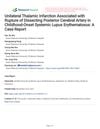 November 2021 in “Research Square (Research Square)”
November 2021 in “Research Square (Research Square)” A 16-year-old boy with lupus had a rare brain artery issue but fully recovered with treatment.
 September 2021 in “International Ayurvedic Medical Journal”
September 2021 in “International Ayurvedic Medical Journal” Bhringraj capsule and oil with Nasya effectively reduce hair fall and related symptoms.
 September 2021 in “Research Square (Research Square)”
September 2021 in “Research Square (Research Square)” Not having enough or having too much of the protein Grainyhead-like 3 leads to various developmental problems.

Tacrolimus causes fewer acute rejections than cyclosporin A in kidney transplants but doesn't necessarily improve kidney function after one year; cardiovascular risks and side effects vary between the two drugs.

Researchers found a genetic link for hereditary hair loss but need more analysis to identify the exact gene.
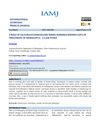 June 2021 in “International Ayurvedic Medical Journal”
June 2021 in “International Ayurvedic Medical Journal” Ayurvedic treatments like leech therapy and turmeric-neem paste can effectively treat alopecia areata without harmful side effects.
 March 2021 in “Research Square (Research Square)”
March 2021 in “Research Square (Research Square)” The SbbHLH85 protein helps sweet sorghum grow more root hairs but makes the plant more sensitive to salt.






























